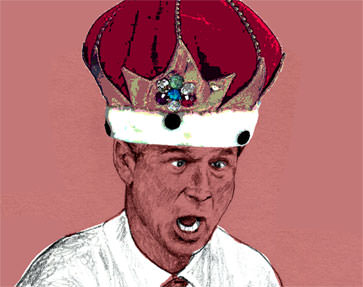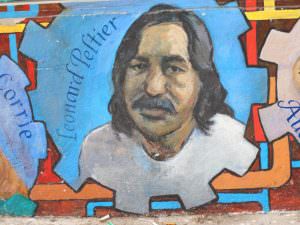Gene Gerard: King George the Merciless
George Bush may have come to power claiming to be a "compassionate conservative," but his miserly use of the president's abililty to pardon makes him one of American history's most indifferent leaders.
The White House recently announced that President Bush had issued pardons to 16 individuals. Their offenses included bank fraud, conspiracy to defraud the government, possession of marijuana and cocaine, and mail fraud. During his first term, Bush issued a mere 31 pardons and commutations. To date he has issued 113 pardons and three commutations. That’s less than any other two-term president in the modern era. In fact, you have to go back to George Washington to find a president who served two terms and made fewer acts of clemency.
The president’s power to grant pardons was clearly enshrined in the United States Constitution, Article II, Section 2: “The President … shall have power to grant reprieves and pardons for offenses against the United States, except in cases of impeachment.” Although the framers of the Constitution debated clemency, it was not viewed as a controversial idea. There was debate about making presidential pardons subject to the consent of the Senate, but the idea was quickly rejected.
As the Founding Fathers were working out the details of the Constitution in Philadelphia, they seem to have essentially agreed that the privilege to exercise mercy, on which the power to issue pardons was founded, could be most easily granted by a single person rather than a legislative body or even judges. Alexander Hamilton, in Federalist Number 74, wrote that ” … one man appears to be a more eligible dispenser of the mercy of the government than a body of men.”
Over the years, presidents have issued pardons to and commuted the sentences of a motley band of crooks, criminals and scoundrels. President Washington gave amnesty to the instigators of the Whiskey Rebellion, while President Andrew Johnson did the same for Confederate rebels. President Richard Nixon issued a commutation to organized crime figure Jimmy Hoffa, only to be pardoned himself by President Gerald Ford after the Watergate scandal.
President Jimmy Carter gave amnesty to the Vietnam War draft resisters and commuted the sentence of bank robber Patty Hearst. President Ronald Reagan issued a pardon to George Steinbrenner of the New York Yankees for having made illegal campaign contributions in the 1960s. President George H.W. Bush pardoned Iran-Contra scandal figure Caspar Weinberger. President Bill Clinton infamously pardoned fugitive financier Mark Rich, whose wife had been a major contributor to the Democratic National Committee.
Franklin D. Roosevelt gave the most pardons and commutations of any president, issuing 3,687 from 1933 to 1945. By contrast, George Washington issued the least, only 16. Only two presidents, William Henry Harrison and James Garfield, chose not to use their power to pardon.
George W. Bush is notable for issuing so few pardons and commutations. Clinton issued 456 during his two terms, compared with Bush’s current 116. Reagan issued 406, Dwight Eisenhower 1,157, and Harry Truman 2,044.
During his time in the Texas Statehouse, Bush issued fewer pardons than any other Texas governor since the 1940s — only 16, compared with 70 for Ann Richards, his immediate predecessor. When questioned about his low number of pardons in an interview with the Star-Telegram newspaper of Fort Worth, then-Gov. Bush suggested that it had not so much to do with any particular political philosophy as with his experience with one pardon he had issued. He pardoned an individual in 1995 for a marijuana conviction, and a few months later that person was arrested for cocaine possession.
No one did more to popularize the political philosophy of “compassionate conservatism” than President Bush, who went out of his way to promote the concept in the 2000 election. Given that the Founding Fathers gave the presidency the power to pardon as a means of demonstrating the government’s mercy, you would think that Bush would have made good use of it. While it’s difficult to think of compassion in numerical terms, issuing a paltry 116 pardons and commutations doesn’t do the word justice.
Your support matters…Independent journalism is under threat and overshadowed by heavily funded mainstream media.
You can help level the playing field. Become a member.
Your tax-deductible contribution keeps us digging beneath the headlines to give you thought-provoking, investigative reporting and analysis that unearths what's really happening- without compromise.
Give today to support our courageous, independent journalists.






You need to be a supporter to comment.
There are currently no responses to this article.
Be the first to respond.